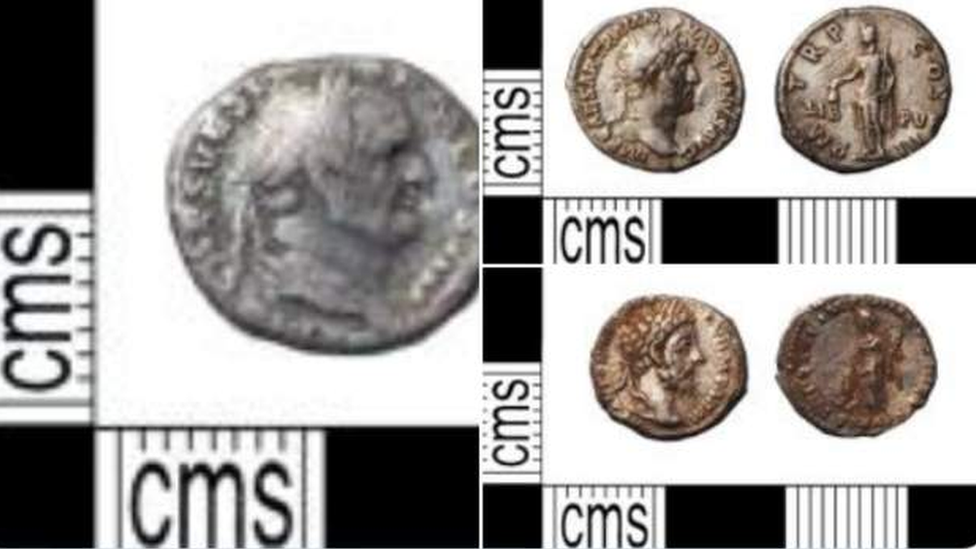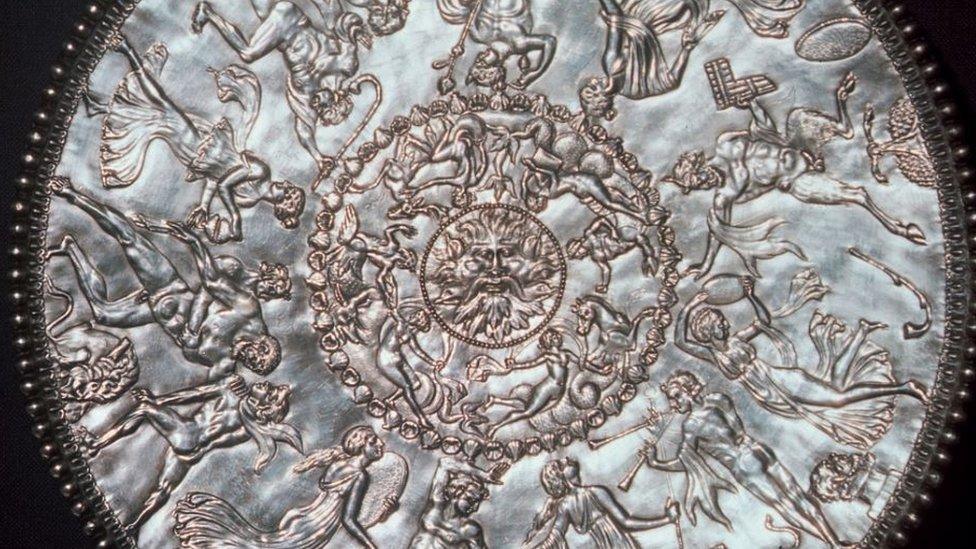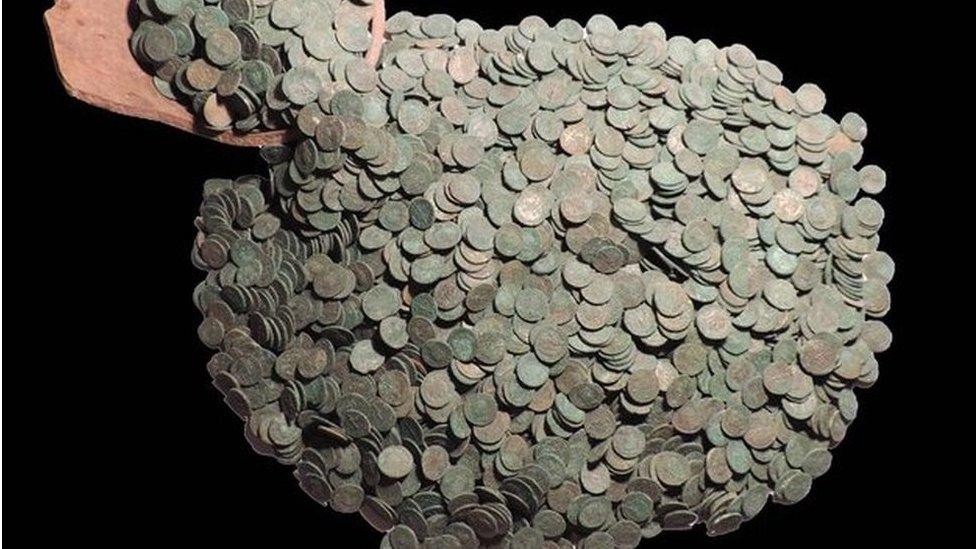Rampside Roman coin hoard could show new unknown settlement
- Published

The 21 coins were found on farmland at Rampside
A hoard of Roman coins could be evidence of a previously unknown settlement, historians have claimed.
The 21 coins were discovered by a detectorist on farmland at Rampside near Barrow, Cumbria, last year.
Although the Romans were known to sail the coastline, it was not known if they actually settled on the Furness peninsula.
Sabine Skae from the Dock Museum in Barrow said a wealthy Roman must have been living there to bury the coins.
"This is quite exciting," said Sabine Skae from the museum.
The coins date from AD 70 to AD 171 and cover the reigns of emperors Vespasian, Hadrian and Marcus Aurelius.
Confirmed treasure
Ms Skae said such collections from that era are common across the former Roman Empire because it was a a period of "political instability" with people hoarding the better quality coins.
But such a find has never been made before on the peninsula.
"This really points a bit to perhaps a navigation light and people living in the area," she said.
No other Roman buildings or remains have been found but Ms Skae said it is possible they have been eroded away by the sea.
The British Museum has confirmed the coins are genuine and a coroner has ruled them to be treasure.
Once a value is agreed, the Dock Museum hopes to buy them to display.

Follow BBC North East & Cumbria on Twitter, external, Facebook, external and Instagram, external. Send your story ideas to northeastandcumbria@bbc.co.uk, external.
- Published22 February 2020

- Published9 May 2019

- Published17 April 2019
